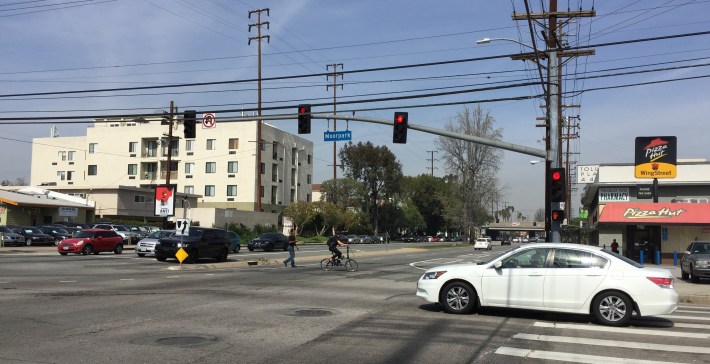In a Rose Garden speech this morning, President Obama soundly rejected Republicans’ push to address the deficit exclusively through spending cuts with no tax increases. He was responding to House Speaker John Boehner, who said last week that tax increases were “off the table.” The outcome of the current deficit-cutting fight could have significant implications for transportation-related proposals like the national infrastructure bank, which Obama included in his recently-unveiled American Jobs Act.
In a speech last Thursday, Boehner ruled out any form of tax increase as the deficit reduction "super committee" decides how to meet its mandate. “When it comes to producing savings to reach its $1.5 trillion deficit reduction target, the Joint Select Committee has only one option," he said, "spending cuts and entitlement reform.”
President Obama went to the mat this morning for a different approach to cutting the deficit. He presented his own plan, which includes some spending cuts and policy changes to Medicare and Medicaid, in addition to other programs. But the centerpiece is the elimination of corporate tax loopholes and of tax cuts for the wealthy.
“I will veto any bill that changes benefits for those who rely on Medicare but does not raise serious revenues by asking the wealthiest Americans or biggest corporations to pay their fair share,” Obama said. “We are not going to have a one-sided deal that hurts the folks that are most vulnerable.”
There are many plans on the table right now, both to increase spending and to cut it. The president released his deficit reduction plan, in part, to explain how to pay for his job creation bill, which includes $50 billion for transportation infrastructure and $10 to capitalize a national infrastructure bank.
But the House has already passed about half the appropriations bills for next year, spelling out dramatic budget cuts in line with Rep. Paul Ryan’s proposals from the spring. There have also been a few spending-cut agreements, including the ones last April that saved the government from an imminent shutdown. And at the end of July, there was another round that saved the country from imminent default, as our debt limit neared expiration. The “super committee” (aka “Joint Select Committee”) formed by that agreement is tasked with another round of work to reduce the deficit. That’s the committee which Boehner is forbidding to raise taxes, and which Obama is now forbidding not to.
We’ve been saying for a long time that spending cuts won't lay the tracks for a 21st century, sustainable transportation system. Any real solution to the dwindling Highway Trust Fund will have to include new revenues – specifically, a higher gas tax indexed to inflation, or even better, a vehicle-miles-traveled fee.
After a barrage of spending cuts since the Republicans gained control of the House -- and the threat of more cuts from the super committee, the House Transportation Committee’s six-year reauthorization proposal, and the 2012 budget – it’s good to see the president using some political capital to say that he’s not willing to cut essential programs to the bone.






